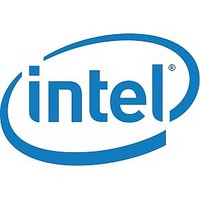DJLXT384LE Intel, DJLXT384LE Datasheet - Page 57

DJLXT384LE
Manufacturer Part Number
DJLXT384LE
Description
Manufacturer
Intel
Datasheet
1.DJLXT384LE.pdf
(140 pages)
Specifications of DJLXT384LE
Lead Free Status / RoHS Status
Not Compliant
Available stocks
Company
Part Number
Manufacturer
Quantity
Price
- Current page: 57 of 140
- Download datasheet (2Mb)
6.5
Document Number: 248994
Revision Number: 005
Revision Date: November 28, 2005
Line-Interface Protection
Figure 6
Intel
and tolerances of devices used with line-interface protection circuitry, see
“Line-Interface-Unit Circuit
For some power-up operations, on rare occasions there is no activity for several seconds on all of
the following transmit-side pins: TPOS, TNEG, TCLK, and MCLK. If this lack of activity occurs
for a period of several seconds, then it can cause transmitter outputs to remain in their last-known
logic state. If the transmitter outputs are in static mode. As a result, then the transformer output
appears as a short circuit to this static DC voltage.
In the worst case of inactivity, one of the transmitter outputs is high while other transmitter outputs
are low. In this case, outputs TTIP and TRING would draw excessive current through the
transformer primary windings and the LXT384 Transceiver can overheat. To manage this type of
power-up operation, do only one of the following:
•
•
•
•
•
•
•
•
•
•
•
®
Receive side. Two 1kΩ resistors protect the receiver against current surges that can couple
into the LXT384 Transceiver. Due to the high receiver impedance (typically 70 kΩ), these
resistors do not affect the receiver sensitivity.
Transmit side. Resistors R
surges. To protect the LXT384 Transceiver output driver from surge currents in excess of 100
mA, a transient voltage suppressor TVS1 (such as Teccor P0080S) is required.
Set OE low until normal operations return.
Set TCLK low until normal operations return.
Set TNEG low until normal operations return.
Set TPOS low until normal operations return.
Provide MCLK with a frequency from 10 kHz to 10 MHz until normal operations return.
Provide TCLK with a frequency from 100 kHz to 10 MHz until normal operations return.
Toggle TNEG with a clock from 100 kHz to 10 MHz until normal operations return.
Toggle TPOS with a clock from 100 kHz to 10 MHz until normal operations return.
As shown in
resistors.
strongly recommends these line-interface protection elements.) For the appropriate values
shows circuitry for line-interface protection. (While not mandatory for normal operation,
Figure
6, add a single 0.47 uF capacitor in series with one of the R
Specifications”.
T
and Schottky diodes D1-4 protect the output drivers from line
Intel
®
LXT384 Octal T1/E1/J1 S/H PCM Transceiver with JA
Table 73
in
T
Chapter 12.0,
output
57
Related parts for DJLXT384LE
Image
Part Number
Description
Manufacturer
Datasheet
Request
R

Part Number:
Description:
Microprocessor: Intel Celeron M Processor 320 and Ultra Low Voltage Intel Celeron M Processor at 600MHz
Manufacturer:
Intel Corporation

Part Number:
Description:
Intel 82550 Fast Ethernet Multifunction PCI/CardBus Controller
Manufacturer:
Intel Corporation
Datasheet:

Part Number:
Description:
Intel StrataFlash memory 32 Mbit. Access speed 120 ns
Manufacturer:
Intel Corporation
Datasheet:

Part Number:
Description:
Intel StrataFlash memory 32 Mbit. Access speed 120 ns
Manufacturer:
Intel Corporation
Datasheet:

Part Number:
Description:
Intel StrataFlash memory 64 Mbit. Access speed 150 ns
Manufacturer:
Intel Corporation
Datasheet:

Part Number:
Description:
Intel StrataFlash memory 32 Mbit. Access speed 100 ns
Manufacturer:
Intel Corporation
Datasheet:

Part Number:
Description:
DA28F640J5A-1505 Volt Intel StrataFlash Memory
Manufacturer:
Intel Corporation
Datasheet:

Part Number:
Description:
5 Volt Intel StrataFlash?? Memory
Manufacturer:
Intel Corporation
Datasheet:

Part Number:
Description:
5 Volt Intel StrataFlash?? Memory
Manufacturer:
Intel Corporation

Part Number:
Description:
Intel 6300ESB I/O Controller Hub
Manufacturer:
Intel Corporation
Datasheet:

Part Number:
Description:
Intel 82801DB I/O Controller Hub (ICH4), Pb-Free SLI
Manufacturer:
Intel Corporation
Datasheet:

Part Number:
Description:
Intel 82801FB I/O Controller Hub (ICH6)
Manufacturer:
Intel Corporation
Datasheet:

Part Number:
Description:
Intel Strataflash Memory28F128J3 28F640J3 28F320J3
Manufacturer:
Intel Corporation
Datasheet:

Part Number:
Description:
Controllers, Intel 430TX PCIset: 82439TX System Controller (MTXC)
Manufacturer:
Intel Corporation











